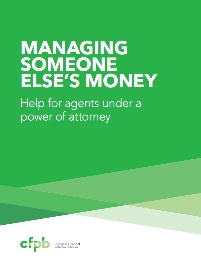Many of us who are caregivers, are also managing finances and bill payments. I was the child who lived the closest to Mom and Dad when their health started to fail, and although my siblings wanted to help, they were separated by too many miles to realistically play an active role in paying our parents’ bills, acting as their medical advocates or managing their household. Those responsibilities naturally fell to me, and the amount of information I needed to manage quickly became overwhelming when it was added to all that I was already doing for my family.
and Dad when their health started to fail, and although my siblings wanted to help, they were separated by too many miles to realistically play an active role in paying our parents’ bills, acting as their medical advocates or managing their household. Those responsibilities naturally fell to me, and the amount of information I needed to manage quickly became overwhelming when it was added to all that I was already doing for my family.
Desperation is the mother of invention, and I decided to create an organizational binder that would help me collect and catalog my parents’ information. I created a one-stop-shop reference resource that helped me save time finding information. Perhaps most important, it allowed me to easily hand over all of our parents’ information—in the form of one, easily transportable book—when a sibling came to town to provide some much-needed caregiving relief. The system launched MemoryBanc.
In addition to managing a lot of new information, I ran into several unexpected roadblocks along the way: During my parents estate planning process, I was given and held their Durable Power of Attorney (DPOA). However, despite the validity of the DPOA, it took many phone calls and in some cases several months for the DPOA to be acknowledged and processed. When some financial services firms refused to accept it, my father and I set up online access to the accounts so I could help them by directly acting on my parents behalf online.
In talking with friends about my experiences, I also realized that planning for future, life-changing events is something all of us seem to recognize as being important, but it’s one of the first things we put on the back burner. There are a million excuses, and I’ve lived many of them. But we need to change our attitude that doing it “later” is okay: According to the 2011 Disability Insurance Statistics Bank: JHA Disability Fact Book, “43 percent of all people age 40 will have a long-term disability event prior to age 65.”
For these reasons, I strongly urge every adult to work with a lawyer to create a Durable Power of Attorney. It should only cost a few hundred dollars.
If you are named as the fiduciary in a DPOA, you should download the free publication called “Managing Someone Else’s Money“. It includes great recommendations as well as good information on steps to take if your run into a roadblock using a valid DPOA. Recommended.
